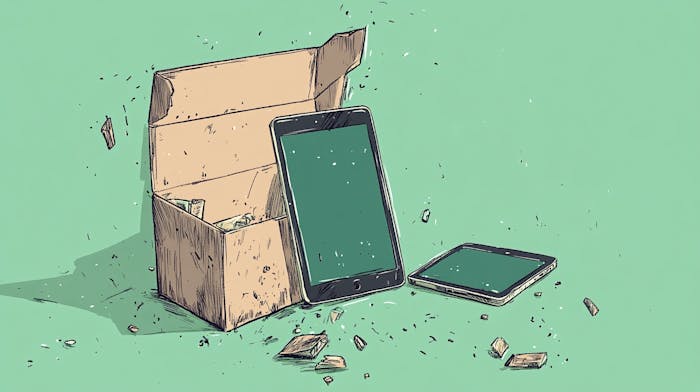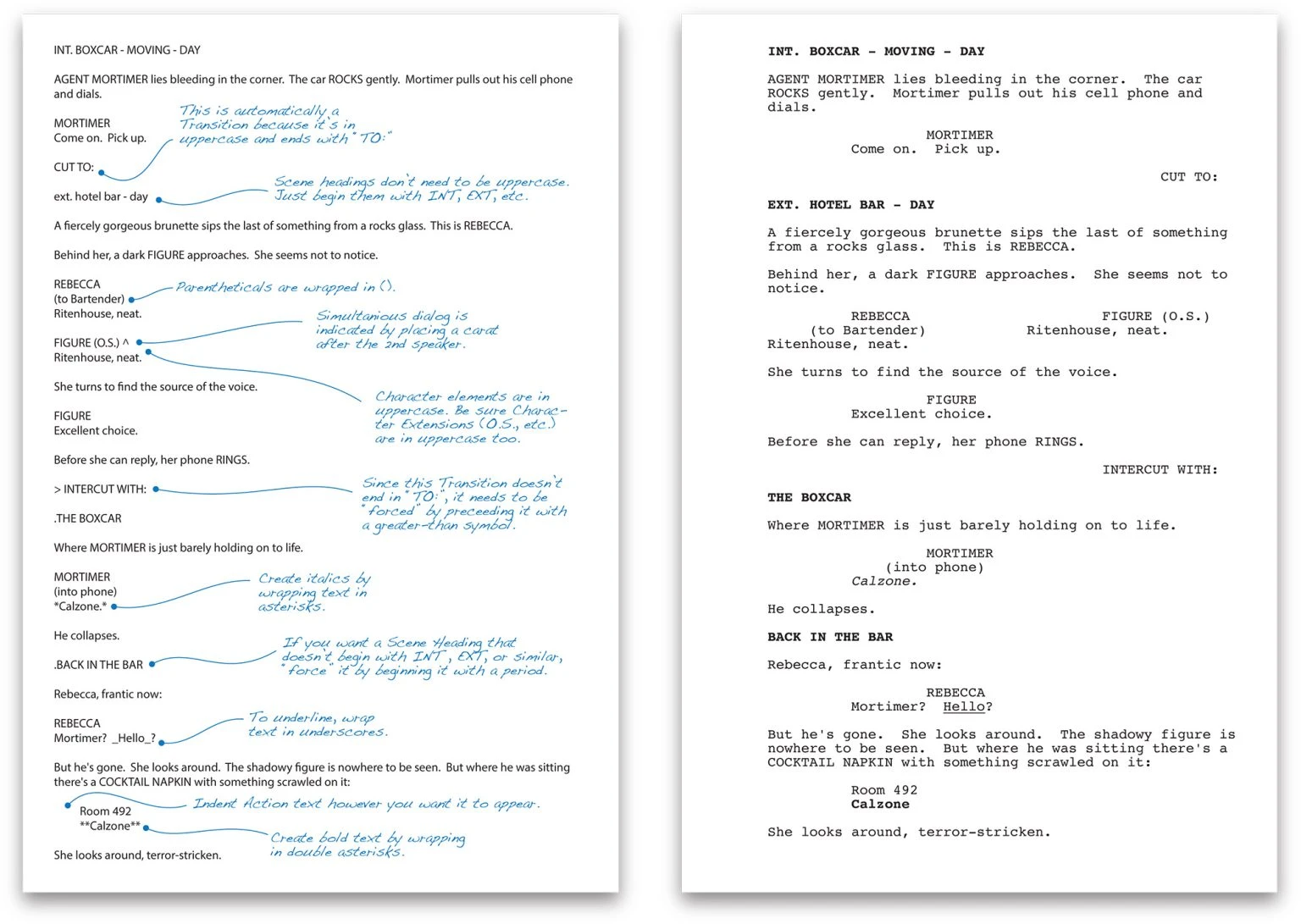File over app: A philosophy for digital
longevity
My take on the “file over app” philosophy and why it’s essential for keeping my data resilient and built to last.

I recently spoke to a reader on the blog during unoffice hours , and we got into a discussion about Notion. While I agree that Notion’s UI is sleek and feature-rich, I had my concerns. I used Notion for a while in early 2021 but eventually switched to Obsidian. This isn’t a promotion for Obsidian — nor am I affiliated — but I made the switch because I wanted a tool that’s local-first, fast, and lets me export files that can outlast any app.
Obsidian, like Notion, uses Markdown for note-taking, but Obsidian stores everything as plain text files on my device. I believe in the long-term value of open, accessible file formats like Markdown, HTML, and plain text. Just as plain text has outlived many technologies, these formats will likely outlive me. Being tied to an app creates potential issues in the long run.
The philosophy of File over app
When I think about note-taking, I believe we should take a long-term view. An undergrad today might want to refer back to their notes in their 30s or 40s. In this context, preferring files over apps makes sense. This idea isn’t new; it resonates with something Steph Ango , the CEO of Obsidian, said:
“File over app is a philosophy: if you want to create digital artifacts that last, they must be files you can control, in formats that are easy to retrieve and read. Use tools that give you this freedom.”
I relate deeply to this perspective. In fact, I have some bitter memories about data loss. When I was interrailing (or EU railing) in Europe, I used Google Trips to plan my itinerary, make notes, and track expenses. When the app was discontinued , I lost all that data because I hadn’t backed it up. Another time, in 2022, I tracked my food intake with HealthifyMe for a few months, only to discover that it offered no way to export or analyze the data. Though I managed to retrieve a raw data blob, it was too cumbersome to work with. If I’d kept that data in a simple, plain-text file, I could have easily processed it with a script.
Personal experience and practical applications
Today, almost all of my notes are in Obsidian. I’m aware that Obsidian might not last forever, but the files will. Markdown files can be read with any text editor, ensuring accessibility across future devices. Plain text has been and will continue to be universally readable. While this article is not about text files, text files are the god-mode of longevity when it comes to files. Derek Sivers talks a bit about this in his blog post, ‘Write Plain Text Files’ . Since 1990, he’s written, blogged, journaled, and even coded in plain text. Donald L. Brown Jr. also goes into detail about the longevity of plain text files in his short book titled ‘A Plain Defense for Plain Text ’.
“Every device, including ones long gone, and ones not invented yet, can read and edit plain text. Whether in VR or a chip implanted in your earlobe, plain text will be there. Will Microsoft Word? Evernote? Notion? Maybe. But plain text? Always.”
—Derek Sivers
In my setup, I sync everything to Google Drive (and iCloud) and back it up locally. My Obsidian vault contains everything from notes to interesting links I collect for my newsletter. I also keep a service log for my bike, recorded in Markdown:
#### Service Log - Triban RC100
3. Date of Service 03-12-2022
Service done by Bike Shop Green Park, Delhi
Odo: 5637 km
Details: Stripdown, hub, dust cap replace, packed
Cost: INR 2000
Notes: INR 300 for home delivery
2. Date of Service: 28-09-2022
Service done by UBC
Odo: 4632 km
Details: Hub Service, FD(Claris), BB and Crank installation
Cost: INR 8500
Notes: Bilal messed up my hub with the wrong bearings.
1. Date of Service: 20-07-2022
Serviced by Bilal at Home, Kerala
Odo: 3768km
Details: Chain/Cassette Change
Cost: 2200 INR
Notes: Last cassette/chain casted - 1150.215km
A simple service log of my bike!
If Obsidian shuts down, it won’t affect my ability to access these files. My directory structure remains intact, readable by any plain text editor. I take this philosophy into other projects as well. For instance, I haven’t found a calorie tracker that allows easy export and syncing, so I’m building my own system using a double-ledger format for calories.
C:\USERS\RISHI\ICLOUDDRIVE\ICLOUD~MD~OBSIDIAN\SECOND BRAIN
├───Archives
├───Notes
│ ├───Books
│ ├───Career
│ │ ├───Job
│ │ ├───Learning Notes
│ │ └───xxx
│ │ └───Daily Notes
│ ├───Crypto
│ ├───Cycling
│ ├───Daily
│ ├───Fitness
│ ├───Learning
│ │ ├───Artificial Intelligence
│ │ │ └───Deep Learning - Fast AI
│ │ │ └───Notes
│ │ ├───Buddhism
│ │ ├───Career
│ │ │ ├───Energy System Modelling - Tom Brown
│ │ │ └───Energy Systems TU Berlin - 2021
│ │ ├───Computer Science
│ │ ├───Drawing
│ │ ├───Energy Economics
│ │ ├───Generative Art
│ │ ├───Mathematics
│ │ ├───Python
│ │ ├───Theoretical Physics
│ │ ├───Visualisation
│ │ └───Web development
│ ├───Misc
│ ├───Personal
│ └───Running
├───Projects
│ ├───Art
└───Unprocessed
A truncated version of my Obsidian Directory
A balanced approach to File over app
I’m not 100% “File over app.” I still rely on Apple’s ecosystem for several things, but I try to back up and store data in accessible formats to reduce dependency. For example, my steps and calorie data sync to a .csv file from Apple Health, and my Strava workout data is stored in .csv files. My gym workout details, tracked in Strong, are scraped into text files. In all digital decisions, I aim to be “File over app” as much as possible.
That said, some projects do rely on specific ecosystems. For example, my pension fund tracker, npsnav.in , is built with Cloudflare Pages and Workers. If Cloudflare were to shut down, I could migrate the code, but it would require effort. Similary my blog relies on Hugo Framework, which is a dependency I want to eliminate. My goal is to create a blog composed of HTML files with basic CSS and JS, reducing external dependencies.
Tools aligned with File-over-App philosophy

How screenwriting looks in Fountain
These are a few tools and projects that align with this philosophy. Here’s a list of apps that I’ve found useful, and if you have suggestions, let me know so I can add them:
Obsidian: A markdown-based personal knowledge management tool
Paisa.fyi: An open-source personal finance manager using double-entry accounting
FlatHabits: A habit tracker that uses org-text, a plain text format for data storage
Fountain - A plain text markup language for screenwriting
Plain Org: A to-do list app using org mode text
Notable: A note-taking app using markdown
ToDo.txt: A command-line to-do list tool
Bruno: that creates plain-text API files wih version control using Git.
SilverBullet: an open-source PKM system with plain-text as back-end.
Logseq: an open-source knowledge based on markdown files.
Emacs with Org Mode: A plain-text tool for managing notes, tasks, and projects, focused on flexibility and long-term accessibility.
OneFolder: Open-source photo organizer storing tags, faces, and locations in metadata, ensuring no lock-in.
If you are working on a similar tool, happy to have a look and add them to the above list!
In the end, “File over app” isn’t just a philosophy — it.s a guideline for making digital choices that prioritize the longevity of data. With each decision, I’m creating a lasting digital archive, one file at a time.
Update #3 - 21-11-2024, 12:45 GST
Thanks to Antoine for recommending OneFolder and the great work behind!
Update #2 - 19-11-2024, 19:03 GST
Thanks to Burno for recommending Emacs with Org Mode
Update #1 - 18-11-2024, 13:30 GST
Somehow, this featured on the front page of Hacker News. 🎉
Thanks to @reddalo for suggesting Bruno.
Thanks to NotABug for recommending SilverBullet and Logseq.
This article was originally published here.

I appreciate how you emphasize the importance of streamlined workflows! EchoAPI makes managing API documentation so straightforward, allowing me to focus more on coding rather than paperwork.
How is this comment relevant in this context?
Thank you for highlighting the importance of this! I have a lyric writing app that stores its contents in plain text files and whilst it can’t offer the same features as other apps (I.e. audio recording), the file over app approach will save my users headache. I have seen reviews on competitor apps where users have reported data loss and it’s a comforting feeling knowing that can’t happen to my users. It probably isn’t useful for the majority of indiehacker users but for musicians the app is called Lyrcs and found at Lyrcs(dot)app
Thanks for the suggestion! I've updated the post with Lyrcs link!
Link: https://rishikeshs.com/file-over-app/
I totally agree with what you are saying here, which is why I developed my own data integration tool called Epitech Integrator to enable backup and data integration in the file format of my choice. We are currently doing an update on it now, take a look and let me know if it fits your needs.
Share a bit more details!
This is an incredibly insightful take on the "File over App" philosophy, and I completely agree with its emphasis on digital longevity. The idea of prioritizing open and accessible formats like Markdown and plain text is crucial in a world where apps and platforms come and go, often leaving users with inaccessible or lost data. Your example of Google Trips and HealthifyMe resonates deeply—I've had similar experiences where proprietary formats or lack of export options made me lose valuable data.
I also appreciate how you’ve outlined practical applications and tools aligned with this philosophy, such as Obsidian and Fountain. It’s a great reminder that while apps are convenient, files ensure sustainability. The directory structure you shared is inspiring—methodical and future-proof.
This approach ties well with the ethos of creating not just digital notes but durable digital artifacts. Your mention of Derek Sivers and his long-standing use of plain text hits home; it’s a timeless and universal standard that we often overlook in favor of flashy interfaces.
Ehm, thanks for the feedback, but you sound like a AI bot! Are you?